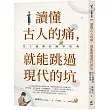This book examines archetypal motifs related to aspects of human relationships in contemporary Irish women's short stories from the late 1960s to the present. These relationships examined embrace not only relationships between men and women, as married couples and lovers, but also women to women relationships as mothers, daughters, sisters or lovers. This book has uncovered certain recurrent motifs which may be construed as archetypal and are employed as a narrative device to express a certain level of feminist awareness by Irish female writers in their stories against the backdrop of Irish feminism emerged in the late 1960s.
This feminist aspect of Irish women's stories appears to address the paradoxes of patriarchal ideology underlying male domination in male/female courtship and marriages, the conflict between patriarchally loyal mothers and rebellious daughters, powerless, but rival, female siblings and peers competing for limited resources and male attention under the Father's law. Motifs of resistance and subversion serve in these stories as metaphors unveiling female protests against an ideology which defines and confines women in the Irish patriarchal context.
This book demonstrates a process of transition during which Irish female writers progress from the depiction of women who struggle and fight against unfairness and distortion within an ‘androcentric’ culture to a new direction in which such writers describe a situation where women recognise the internalisation of the ‘false consciousness’ of patriarchy and, out of this recognition, may be eventually able to develop further their sense of self and individuality. The archetypal motifs in Irish women's stories also illustrate a kind of continuity of an ancient female archetype of female rebellious powers which in female literary imagination never ceases to resurface in the face of patriarchal suppression.



 天天爆殺
天天爆殺  今日66折
今日66折 





































 博客來
博客來 博客來
博客來 博客來
博客來 博客來
博客來 博客來
博客來